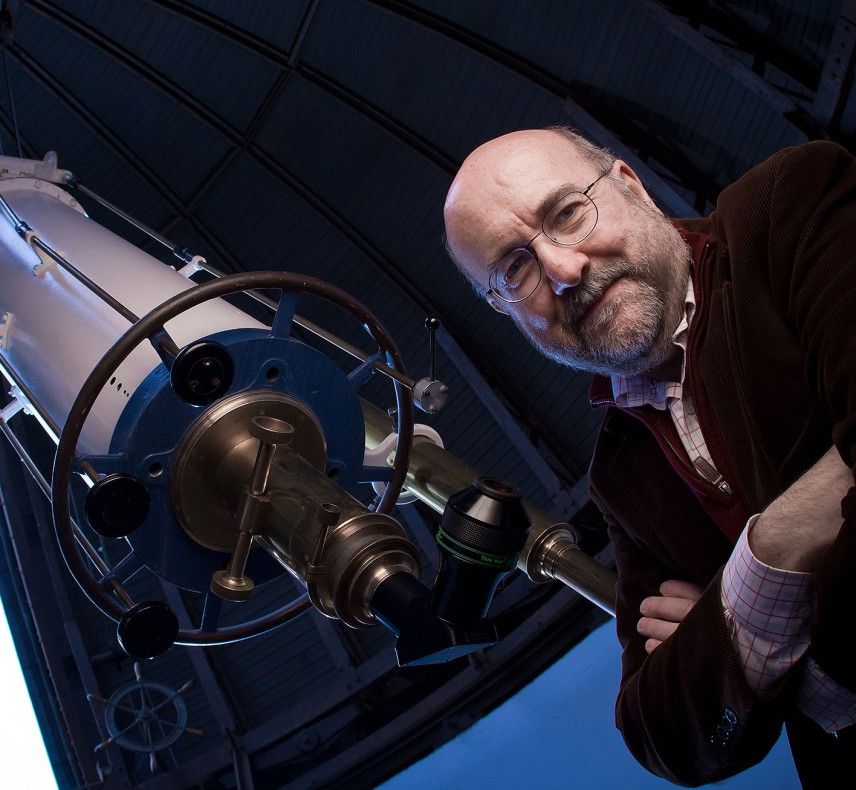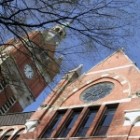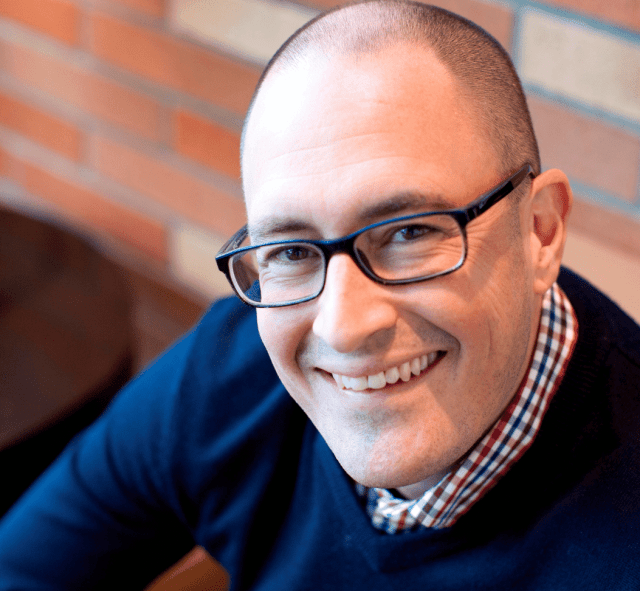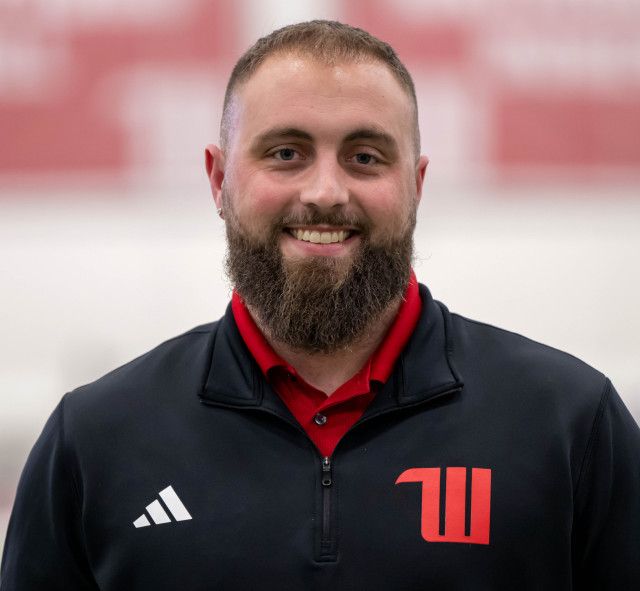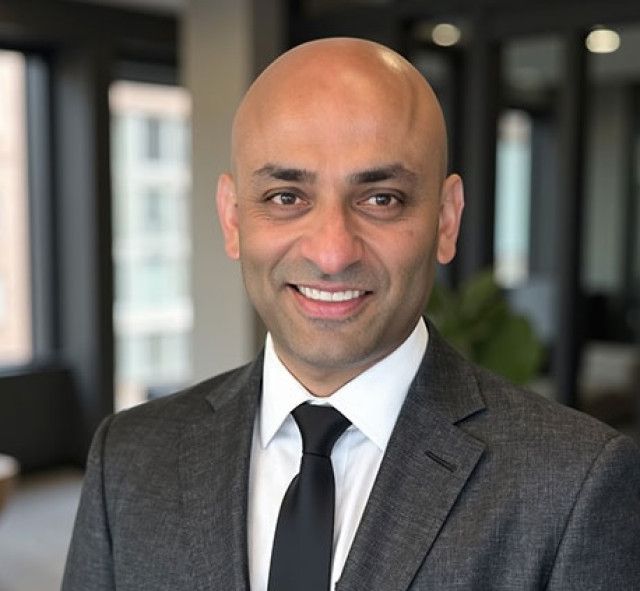Passionate when it comes to educating future generations about astronomy, the solar system, and all the night sky has to offer, Wittenberg’s resident astronomer, Professor Emeritus of Physics Daniel Fleisch, will host three community events in the coming weeks. Two events will take place on Saturday, Oct. 7, while the third will take place on Saturday, Oct. 14.
For the past three years, Fleisch has been capturing true-color images of astronomical objects including planets, nebulas, star clusters, and galaxies from Weaver Observatory and from the front yard of his home in Springfield. The best of those images from Weaver’s telescope and his astrocameras will be on display in the lobby of the Clark State Performing Arts Center during the Springfield Symphony Orchestra’s (SSO) performance of “The Planets” by composer Gustav Holst, at 7:30 p.m. on Saturday, Oct. 7. Tickets are available here, and a special 15 percent off code is available for Wittenberg employees, students, alumni, and friends. Email alumni@wittenberg.edu to learn more.
Touted as a delightful musical journey through the solar system with all its astrological history, Fleisch’s production of “The Planets” will partner with multi-media company The Now Device and the SSO. Space footage will be choreographed to the music on three screens suspended above the stage. The Now Device is a visual media arts ensemble that melds sight and sound into unforgettable live performances.
“On the evening of the performance, I’ll be on hand to discuss the photos and the astronomical instrumentation for an hour before the performance and during the intermission,” Fleisch said. “The idea is that this will help symphony-goers understand the images they’ll be seeing during the performance. The display will also be available for viewing after the performance for anyone wanting to take another look.”
Fleisch, who served as the Astronomer in Residence at Grand Canyon National Park in Arizona last year and again this past summer, will also have a surprise for guests attending the show.
“While I’m at the display, I’ll also be showing and allowing people to hold a small but surprisingly heavy meteorite,” he said. “Many of the approximately 8,000 visitors with whom I interacted during my Grand Canyon Residency in the fall of 2022 and my follow-up visit in the summer of 2023 expressed great interest in holding this chunk of iron that was fused inside a star, got blasted into space when that star exploded perhaps a billion years ago, broke off from an asteroid millions of years ago, and fell in the mountains of Russia in 1947.”
Following the SSO performance, Fleisch, who just learned that a minor planet in the asteroid belt has been named after him, will head back to Wittenberg’s campus to present a Tour of the Night Sky at Weaver Observatory during the University’s Homecoming, Reunion & Family Weekend. Beginning at 10 p.m., Saturday, Oct. 7, Fleisch will navigate and educate attendees about the night sky and show everyone a glimpse of Saturn and Jupiter through the Weaver Observatory telescope. The University’s main observational instrument, the telescope features a 10-inch refractor lens. The refractor was placed in the observatory in the spring of 1931; however, the 10" objective lens, cast by the Carl Lundin Co., was probably completed up to a year earlier. The telescope was refurbished in 2003, with careful attention paid to preserving the vintage instrument.
Fleisch will also talk about the upcoming partial solar eclipse – when the moon covers a portion of the sun – that is set to occur on Saturday, Oct. 14, 2023. From Wittenberg, this event will take place between 11:45 a.m. and 2:30 p.m., with maximum coverage of approximately 40 percent of the sun's area occurring at about 1:06 p.m. From some locations in the southwestern United States, Central America, and South America, this event will be an ‘annular eclipse’ in which the moon covers the entire sun except for a thin ring (called an annulus) around the edge. That effect is why some refer to this event as a ‘ring of fire’ eclipse in those locations.
During this eclipse, Fleisch reminds everyone that there is no time when it is safe to look directly at the sun without using a special-purpose solar filter that complies with the transmission requirements of the ISO 12312-2 international standard. Glasses such as these with safe filters will be available at Weaver Observatory during this event. Ordinary sunglasses, even very dark ones, are not safe for looking at the sun; they transmit far more sunlight than is safe for human eyes.
Fleisch purchased special viewing glasses for the upcoming partial eclipse through Rainbow Symphony and Thousand Oaks Optical. For information on safe viewing of the partial eclipse, click here. For more information about eye safety and the eclipse, visit https://eclipse.aas.org/safety.
The partial solar eclipse activities are a precursor to the full solar eclipse that will occur on April 8, 2024. Stacy Porter, assistant professor in environmental science, along with Fleisch and other Wittenberg faculty and staff, are working to finalize campus events surrounding the eclipse next year.
About Professor Emeritus of Physics Daniel Fleisch
Recipient of the 2004 Alumni Association Award for Distinguished Teaching, and the 2010 Ohio Professor of the Year, Fleisch is one of the top 25 science, technology, engineering, and mathematics (STEM) professors in Ohio (read complete bio). Named the Outstanding Faculty Member at the Wittenberg Greek Scholarship Awards in 2000, he also won the Omicron Delta Kappa Award for Excellence in Teaching in 2002. In 2003 and 2005, he was recognized for Faculty Excellence and Innovation by the Southwestern Ohio Council for Higher Education (SOCHE), which recently changed its name to the Strategic Ohio Council for Higher Education. He recently received the exciting news that the International Astronomical Union Working Group Small Body Nomenclature (WGSBN) has voted to name a minor planet in the asteroid belt “17037 Danfleisch.”
Fleisch received his B.S. in physics from Georgetown University and his M.S. and Ph.D. in space physics and astronomy from Rice University. Specializing in electromagnetics and space physics, he is a best-selling author, penning six books thus far with Cambridge University Press, including the co-authored work A Student's Guide to the Mathematics of Astronomy with 2001 Wittenberg alumna, astronomer, writer, and professor Julia Kregenow, and his latest two releases, A Student's Guide to the Schrödinger Equation and A Student’s Guide to Laplace Transforms. His other books include A Student's Guide to Maxwell's Equations, published by Cambridge University Press in 2008, and A Student's Guide to Vectors and Tensors, published by Cambridge in 2011. Additionally, he co-authored with Wittenberg physics graduate Professor Laura Kinnaman of Citrus College, A Student's Guide to Waves, published by Cambridge in 2014 and the McGraw-Hill textbook Electromagnetics with Applications with late professor John Kraus of The Ohio State University. Fleisch's student guides have become international best-sellers and have been translated into Japanese, Korean, Chinese, and Italian.


